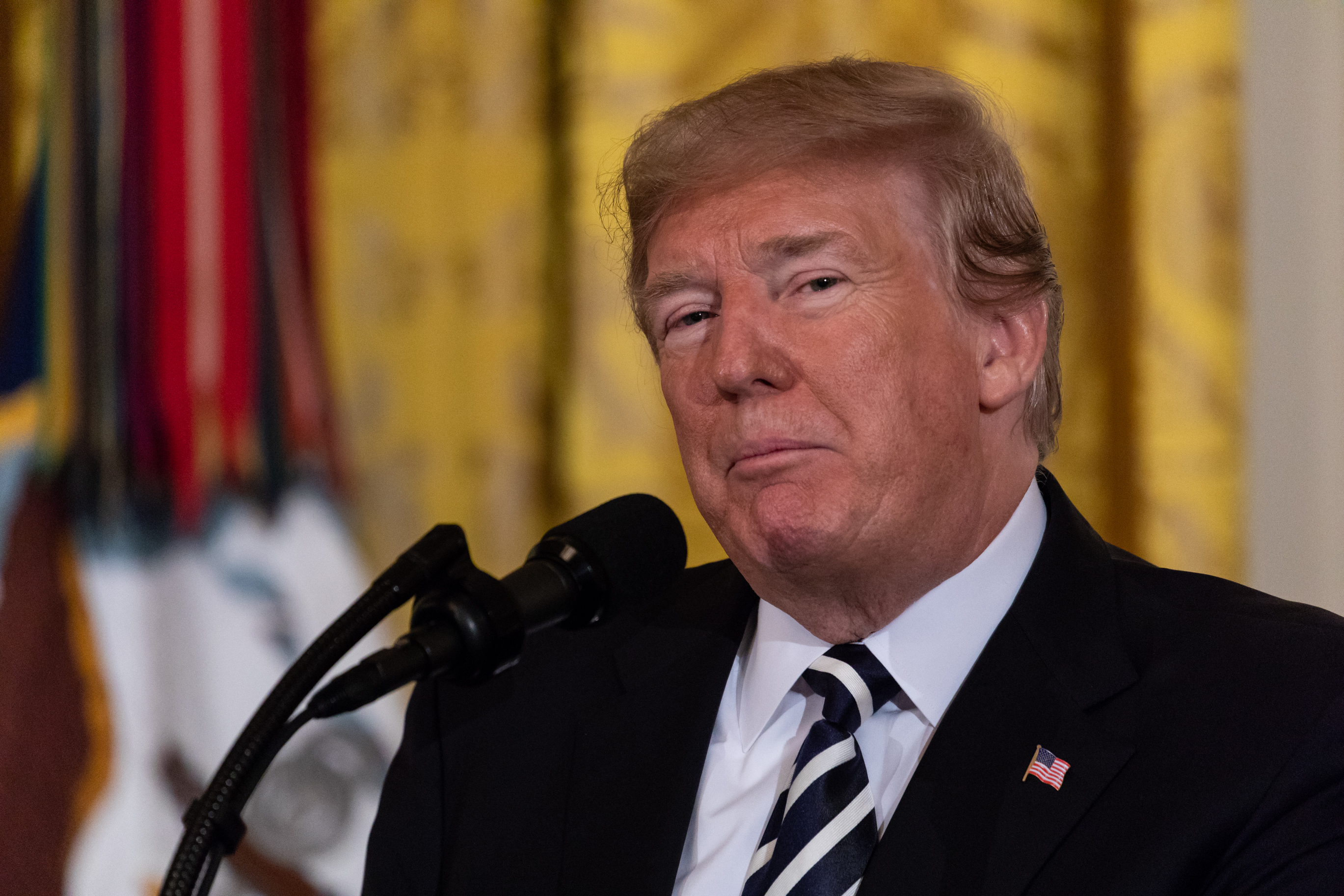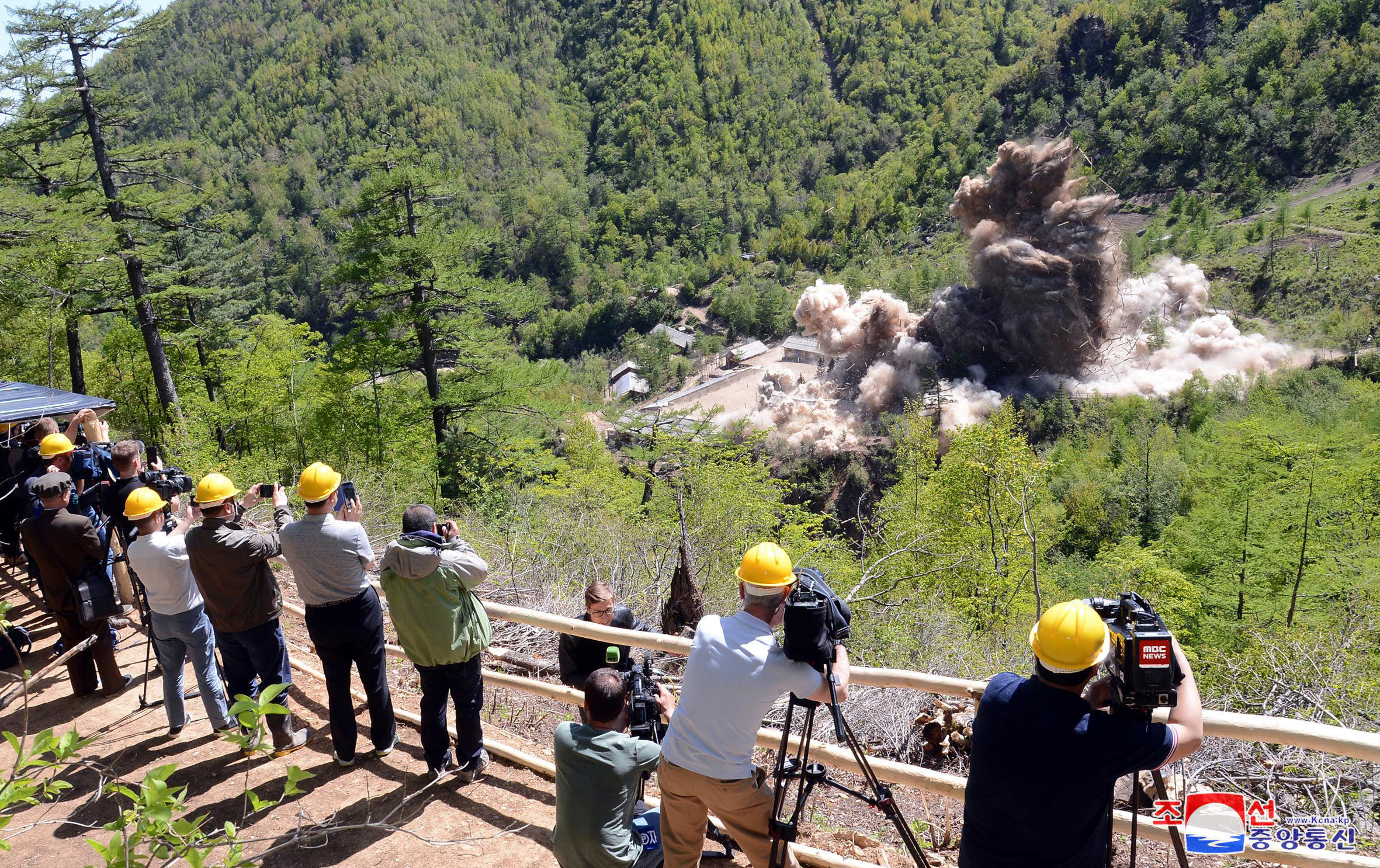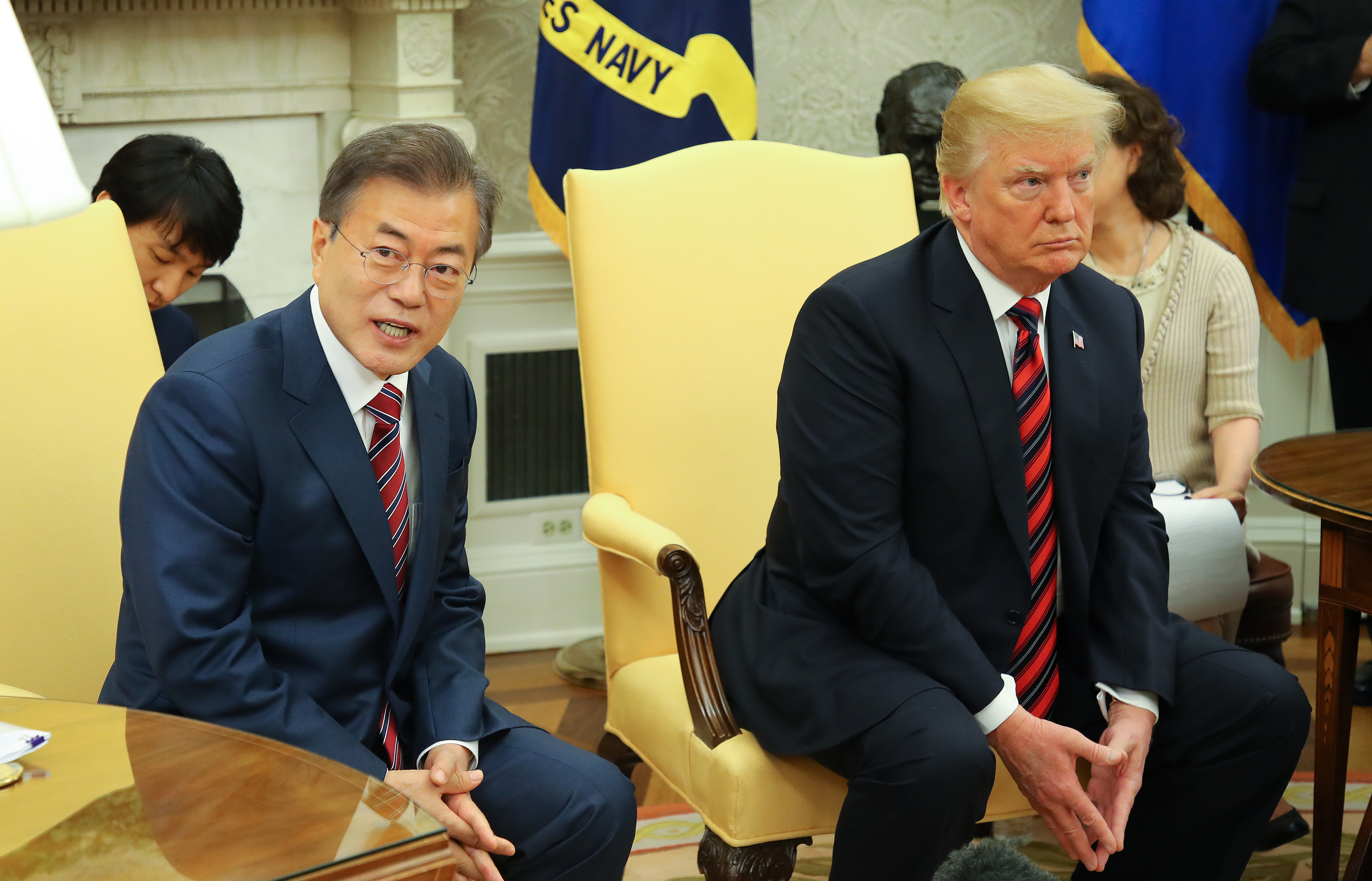
Trump: North Korean Summit Response Is 'Good News'

The US president said he hoped prosperity and peace with North Korea would occur. (Cheriss May/SIPA USA/PA Images).
Donald Trump has welcomed North Korea's latest statement on nuclear talks as "good news" and said: "We will soon see where it will lead."
The North Korean government said it was still "willing to give the US time and opportunities" to reconsider talks "at any time, at any format".
The statement was issued in response to Mr Trump's abrupt cancellation of the June summit between the two countries in the US bid to get North Korea to abandon its nuclear weapon.
Mr Trump previously blamed "tremendous anger and open hostility" by Pyongyang and abandoned for now a meeting that held the promise of a historic peace deal but also the risk of diplomatic meltdown.
North Korea issued a statement on Friday saying it is still "willing to give the US time and opportunities" to reconsider talks "at any time, at any format".
Vice foreign minister Kim Kye-gwan called Mr Trump's decision "unexpected" and "very regrettable", and said the cancellation of the talks shows "how grave the status of historically deep-rooted hostile North Korea-US relations is and how urgently a summit should be realised to improve ties".
In a letter to Mr Kim on Thursday announcing his decision to back away from the 12 June summit, Mr Trump pointed to America's vast military might and warned the rising nuclear power against any "foolish or reckless acts".
The letter kicked off a day of mixed messages by the president, who declared hours later:
"I really believe Kim Jong-un wants to do what's right."
Then, after that, a senior White House official said the North lacked judgment and had reneged on its promises ahead of the summit.
Mr Trump said from the White House that a "maximum pressure campaign" of economic sanctions and diplomatic isolation would continue against North Korea, with which the US is technically still at war, but he added that it was possible the summit could still take place at some point:
The president's surprise exit capped weeks of high-stakes brinkmanship between the two unpredictable leaders over nuclear-negotiating terms for their unprecedented sit-down.
Th US announcement came not long after Mr Kim appeared to make good on his promise to demolish his country's nuclear test site.
But it also followed escalating frustration - and newly antagonistic rhetoric - from North Korea over comments from Trump aides about US expectations for the North's "denuclearisation".
The senior US official said the North violated a pledge to allow international inspectors to monitor the supposed implosion of the site on Thursday.

Russian president Vladimir Putin, a staunch Kim ally, said the North Korean leader had in fact done "everything that he had promised in advance, even blowing up the tunnels and shafts" of his country's nuclear testing site.
Mr Putin said of Mr Trump's announcement:
"In Russia, we took this news with regret."
Mr Trump, in his letter to Mr Kim, objected specifically to a statement from a top North Korean Foreign Ministry official.
That statement referred to US Vice President Mike Pence as a "political dummy" for his comments on the North and said it was up to the Americans whether they would "meet us at a meeting room or encounter us at nuclear-to-nuclear showdown".
Underscoring the high stakes, Mr Trump said he had spoken with military leaders, as well as Japan and South Korea, and stressed that the United States was prepared for any threat.
Still, Mr Trump's announcement appeared to surprise South Korea.

The Blue House said on Thursday that it was trying to figure out Mr Trump's intentions in cancelling the summit.
Mr Trump, who considers himself a master dealmaker, has confounded aides and allies at every turn of the fateful flirtation with the North.
He looked past the warnings of senior aides when he accepted Mr Kim's invitation to meet back in March.
After initially projecting calm in the face of North Korea's escalating rhetoric, he made a sudden about-face, though his letter also waxed poetic about the "wonderful dialogue" emerging between the two leaders. He wrote:
"If you change your mind having to do with this most important summit, please do not hesitate to call me or write."









